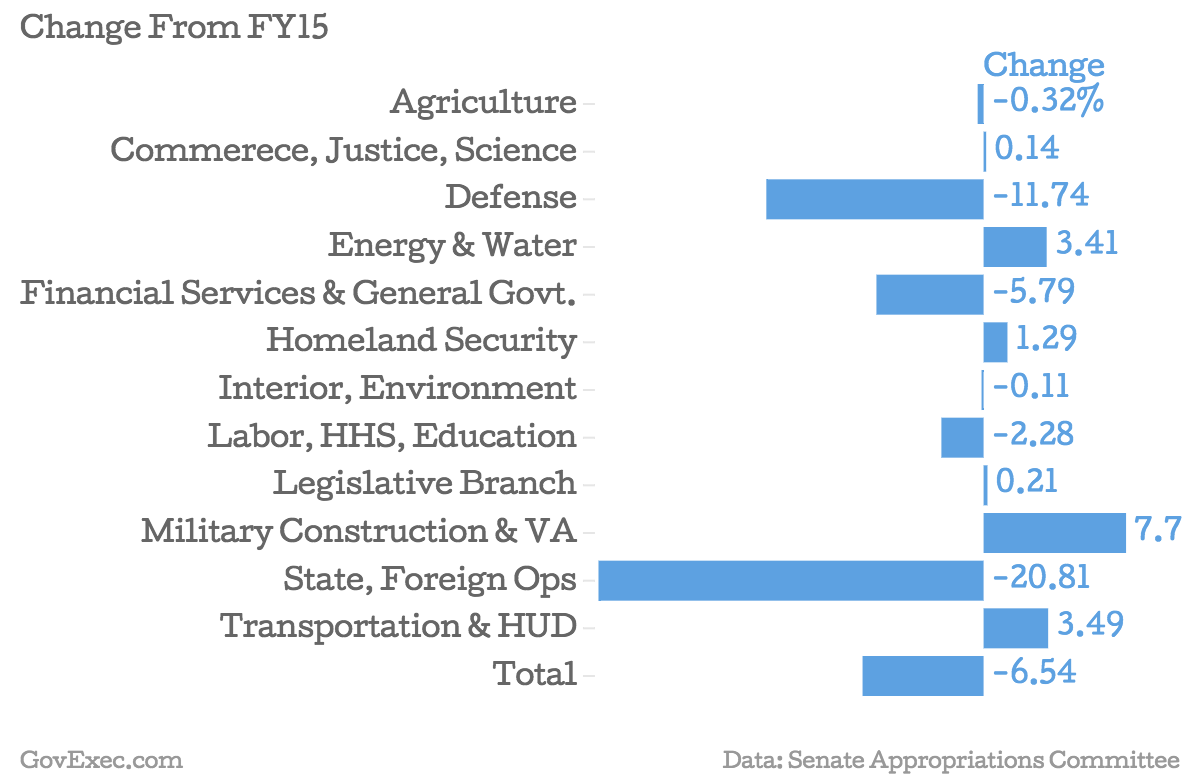
Bill Perry/Shutterstock.com
Agencies That Stand to Lose the Most Under Senate Spending Plan
Appropriators would cut $71 billion in discretionary spending in fiscal 2016.
A Senate committee on Thursday laid out proposed spending totals across all 12 areas of government for fiscal 2016, calling for domestic spending cuts of nearly 7 percent compared to 2015 levels.
Along party lines, the Senate Appropriations Committee approved spending levels in line with those required by the 2011 Budget Control Act. Democrats called those levels insufficient and sought to boost spending by 7 percent, but their efforts fell short.
Committee Chairman Sen. Thad Cochran, R-Miss., said calls from President Obama and the panel’s Democrats to set aside BCA caps ignores the responsibilities of the committee. Obama has threatened to veto any spending bill that keeps spending in line with the funding restrictions.
“[Obama’s] budget is based on the premise that any increase for Defense spending should be matched dollar for dollar by an increase in non-Defense spending,” Cochran said. “That sounds like a bumper sticker rather than a budget.”
The Republican spending levels -- which will now be sent to each jurisdiction’s subcommittee to create 12 distinct, line-by-line appropriations bills -- hit the State Department and foreign operations the hardest. Agencies whose budgets fall within the appropriations categories of agriculture; defense; financial services and general government; interior and the environment; and labor, health and human services and education all would face cuts under the spending guidelines (though the Pentagon controversially would receive a spending boost through the Overseas Contingency Operations fund).

The Senate subcommittees were tasked with spending levels below those proposed by the House, which has already approved three appropriations bills -- all of which have received veto threats from the White House.
Sen. Barbara Mikulski, D-Md., the committee’s ranking member, criticized the funding levels and called for a compromise budget resolution to enable more discretionary spending. She pointed to the agreement struck between Sen. Patty Murray, D-Wash., and Rep. Paul Ryan, R-Wis., in 2013 as a model for a future deal.
“This funding ceiling is Spartan,” Mikulski said. “It does not contain enough resources to meet the needs of the American people for their security, jobs and future.” She added the Democratic spending proposal was not “lavish or irresponsible,” but would simply bring funding back to 2010 levels.
(Image via Bill Perry/Shutterstock.com)
NEXT STORY: What Happens if Patriot Act Section 215 Expires?







